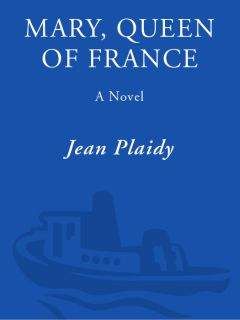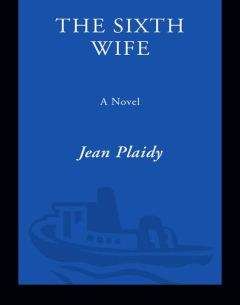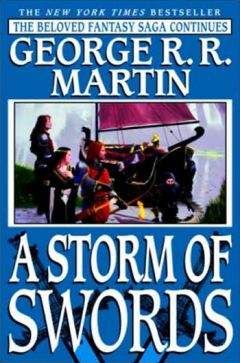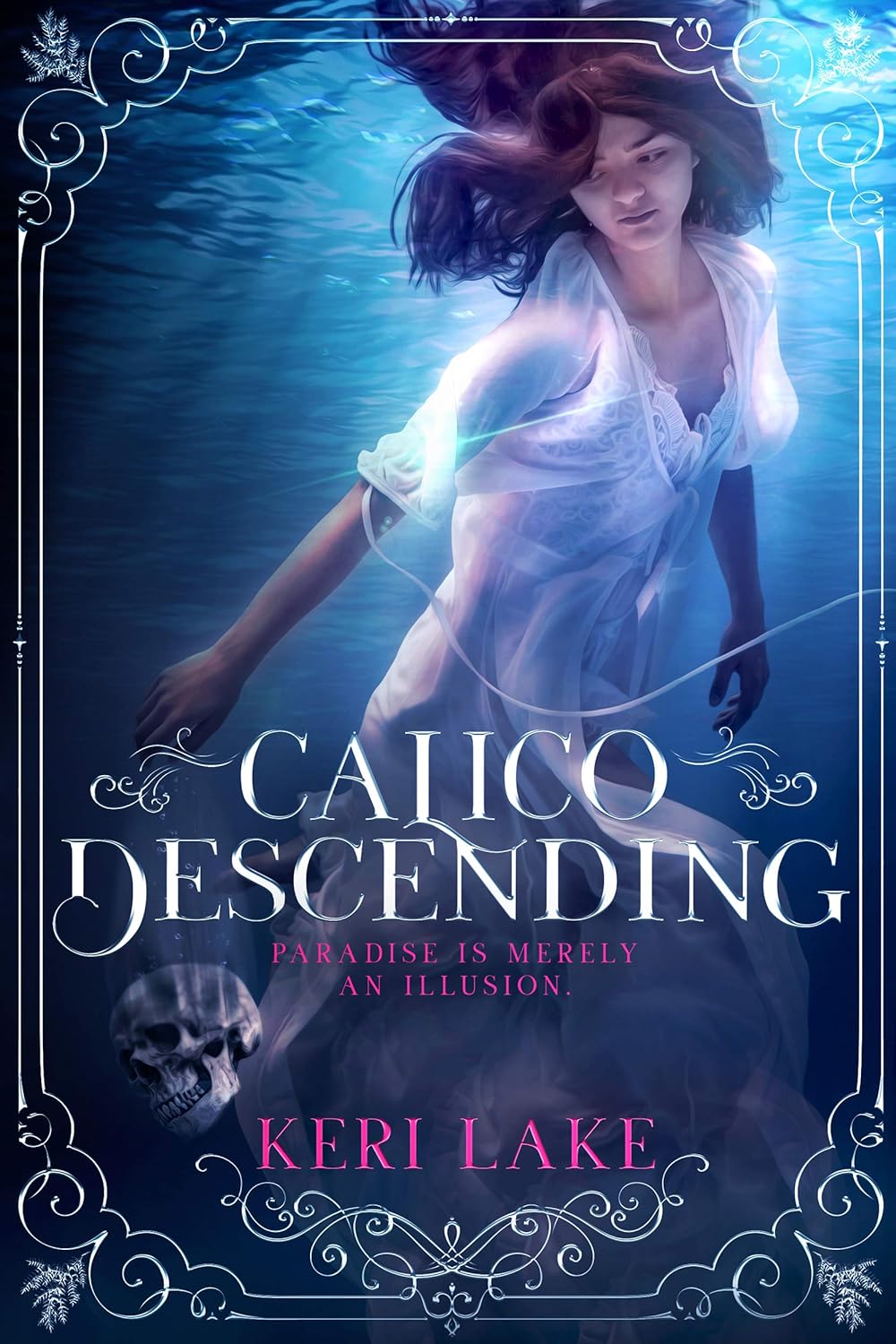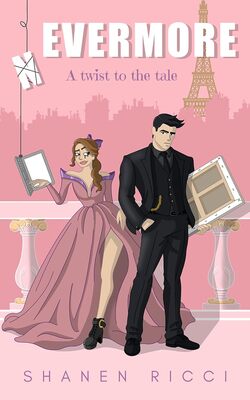Jean Plaidy - To Hold the Crown: The Story of King Henry VII and Elizabeth of York
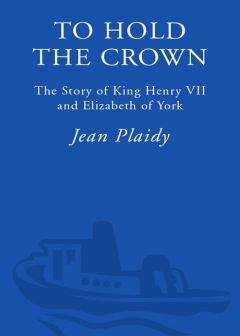
Помощь проекту
To Hold the Crown: The Story of King Henry VII and Elizabeth of York читать книгу онлайн
Ever since they had left the land he had had to endure her company. Wherever he went she was after him and it was not easy to hide oneself on board a ship. He had consoled himself: soon we shall be in Castile. Soon the crown will be handed to her. He could already feel it on his head.
And now . . . this storm. Was it the end? He had been a fool to bring his army to sea. But what else could he do? He did not want to appear without it . . . and Ferdinand had no right to make treaties with the King of France, allying himself with France through that marriage with the French King’s niece. Artful old devil, thought Philip. He would probably be delighted if they perished at sea. Then he would get his hands on the baby Charles and bring him up as he thought he should be.
God forbid!
Once Juana had the crown perhaps he could put her away. Heaven knew, her conduct should not make that difficult.
But now all his plans were to come to nothing. Here he was at sea, and with every passing moment the storm was rising.
He was shouting orders to his men. They were afraid, he knew that. Only those who knew the sea could understand how terrible it could be. Philip was brought face-to-face with that knowledge and he could only fear that he had come to the end.
Someone had brought him an inflated jacket. It might be necessary to leave the ship, my lord, he was told.
“Leave the ship? I never will. Where are my other ships?”
“They are no longer with us, my lord. Some may have been lost . . . others blown to land somewhere. We are in the English Channel. Thank Heaven the English coast cannot be far away.”
Juana came rushing up to him. She was dressed in a furred robe and about her was strapped a purse.
She laughed at him and held out her arms. “We shall die together, my beloved,” she cried. “I ask nothing more.”
She would embrace him, but he threw her aside.
“This is no moment,”he said. “We have to be prepared. We may have to abandon ship.”
“Ah, for the sea’s embrace,” cried Juana. “I trow it will be a little more welcoming than yours, my cruel lord.”
“Try to be sensible,” said Philip angrily. “At such a time . . . have you no sense?”
“None at all,” she cried. “None where you are concerned, most beautiful and cruel of men.”
He had turned away. “What now?” he said to the men who, in spite of the situation, could not help gazing at Juana in astonishment. “Could we land?” asked Philip.
“We could try. If the ship will hold out long enough. . . .”
“England,” said Philip. “Well, better than a watery grave mayhap.”
Juana had flung herself at him once more and was clinging to him.
“Let us die together, sweet husband,” she cried dramatically, and again he flung her from him.
“Death!” he cried in a fury. “At least it would be escape from you.”
Then he had left her and staggered onto the deck.
Juana who had fallen, partly due to Philip’s rough treatment and partly due to the violent movement of the ship, half-raised herself and sat rocking to and fro.
“Oh my love . . . my love!” she cried. “Will you ever love me? I will stay with you forever. You will never be rid of me never . . . never.”
Her women were running round her. They were frightened out of their wits—not by her strangeness, they were accustomed to that—but at the prospect of death at sea.
The thunder roared and the lightning was terrifying.
“Philip,” screamed Juana. “Where are you, my love, my husband. Come to me. Let us die in each other’s arms.”
One of her women knelt beside her.
“You are frightened, woman,” said Juana. “You tremble. We are going to die are we not? I wonder what it is like to drown. Death comes quickly some say and in this sea surely so. I am not afraid of dying. There is only one thing in this world that I am afraid of . . . losing him . . . losing my beloved. . . .”
She looked at them . . . these women who were clustering round her. They were in greater need of comfort than she was. She spoke truthfully when she said she was not afraid. If she could be with Philip that was all she asked.
The ship was lurching violently and as Juana tried to get to her feet, she heard a voice crying out: “Land! Land. The lord be praised, it’s land.”
Philip shouted: “Can we make it?”
“We have to, my lord. This ship can’t carry us farther . . .It’s land or death in the sea.”
“Go for the land then,” said Philip.
He was thinking that he would have to throw himself on the hospitality of Henry. Was that wise? Most unwise, he thought. He would be more or less Henry’s prisoner. Here he was with only a few seamen at the mercy of one who might befriend him if it were expedient to do so.
But it was that or death by drowning, so there was only one course to take.
Juana was on her feet. She staggered on deck and stood beside Philip. She looked incongruous in her fine gown with her purse of gold strapped about her waist and her long hair flying in the wind. She was beautiful; there was no denying that and in her wildness she was like some sea goddess rather than a normal woman. Philip looked at her in momentary admiration. She had shown less fear than any of them at the prospect of drowning.
“Philip,” she cried. “We are together . . . We have come through this.”
She clasped his arm and he did not throw her off. Perhaps it was too solemn a moment and he was too relieved that land was in sight and that death was not imminent.
“I think,” he said slowly, “that we may be safe.”
As they came nearer to the land they saw that people were waiting there. In the early morning light this was a frightening sight, for some of those people carried bows and arrows and others had farming instruments which they could be intending to use as weapons. They looked menacing.
The ship had ground to a halt and some of the men were wading ashore.
Philip heard one shout, “This is the Archduke of Austria and King of Castile, with his Duchess and Queen. We beg for refuge.”
There was a chorus of “Come ashore.”
We must, thought Philip wryly. There is nothing else we can do.
It was not long before, with Juana beside him, he was standing on dry land.
One man had put himself in front of the crowd and it was clear that he was a person of some authority.
“I am Sir John Trenchard,”he said. “Squire of these lands. I welcome you ashore.”
“Thank you,” said Philip. “Tell me where we are?”
“You have landed at Melcombe Regis . . . you just missed Weymouth. All along the coast your ships have been watched. There’ll not be many which have escaped the storm I fear, my lord Archduke. I thank God that you are safe. My house and household will be at your service and I doubt not you would wish to come with me right away.”
“There is nothing I should desire more,” said Philip.
“Then let us go. We are close by. You can have food and shelter at least.”
The manor house was warm and cozy after the rigors of the night and Philip could not feel anything but relief and an overpowering joy that his life had been saved. The savory smells of roasting meat filled the hall and he gave himself up to the pleasure of taking advantage of the comforts his host had to offer.
Lady Trenchard was giving urgent orders in the kitchens and throughout the household, while her husband dispatched a messenger to Windsor that the King might know without delay what an important visitor Sir John had in his house.
The King received the news with an excitement so intense that for once he felt unable to hide it. Philip in England! Shipwrecked! At his mercy in a way. Fortune could not have been more favorable.
The weather was bad; the heavy rain was causing floods all over the country and although the violent wind had abated a little it was still wreaking damage throughout the land.
Henry blessed the storm. Nothing could have worked more favorably for him. Philip must be accorded a royal welcome, he said. He should be met and brought to the Court where Henry would devise such hospitality which would astonish all those who were aware of his reluctance to spend money. He was sure Dudley and Empson would agree with him that this was one of those occasions when it was necessary to spend.
He sent for young Henry.
The Prince had a faintly resentful look in his eyes. The King knew what that meant. He would soon be fifteen years of age and he resented being kept so closely under his father’s surveillance.
Often the King had impressed on his son how much depended on him, what great responsibilities would be his, and it was then that he grew faintly uneasy because he saw that faraway look in the boy’s eyes, which meant that he was seeing the time when he would be king and imagining what he would do when his father was no longer there to restrain him.
“Be thankful, my lord, for the Prince’s good health and looks and his popularity with the people,” said his ministers.
“I am,” replied the King, “but sometimes I think it would be better if he were a little more like his brother Arthur was.”
“The Prince will be strong, my lord. Have no fear of that.”
And he sighed and supposed they were right. He knew that some of those who wished him well believed that he looked for trouble; he was never at ease and was always expecting disaster. Well, that was so; but then it was due to the way in which he had come to the crown.
Now he looked at his son.
“You have heard the news doubtless. The Archduke Philip has been shipwrecked on our shores. He is at Melcombe Regis with his wife.”
“Yes,” said Henry. “I have heard it. Philip and Katharine’s sister.”
The King frowned. He would have to pay a little more respect to Katharine now that her sister and brother-in-law were here, he supposed. But he was faintly irritated that his son should mention her.
“You are always saying that you are not allowed to take a big enough part in important matters. Well, my son, here is your chance. Philip must be welcomed to our shores. Quite clearly I cannot go to meet him. I do not want to treat him as though he is a conqueror, do I? But I wish to show him honor. I intend to make this visit memorable . . . for myself as well as for him. So I shall send you, my son, to welcome him. You will go at the head of a party and greet him in my name.”
Henry’s eyes sparkled. How he loves taking a prominent part! thought the King. How different from Arthur!
“You will treat Philip with every respect. You will welcome him warmly. You will tell him of our pleasure in his coming. Now go and prepare to leave. I will see you before you set out and will prime you in what you will have to say to our visitor.”
Henry said: “Yes, my lord.”
He was all impatience to be gone, thinking: What shall I wear? What shall I say? Philip of Austria . . . son of Maximilian . . . one of the most important men in Europe, one whose friendship his father was eager to cultivate. He would excel. He would show everyone how he would handle delicate matters. . . .
“You may go now,” said the King. “I will see you before you leave.”
Henry was off, calling to Charles Brandon, Mountjoy . . . all his friends.
An important mission entrusted to him at last!
In her apartments Katharine heard the news. Her sufferings had not diminished since she came to Court. In fact she thought that they had become more humiliating; for here she must live close to the rich and observe that the humblest squire was more comfortably situated than she was. It was amazing how quickly servants realized the contempt of their masters and lost no time in reflecting it. True she and her attendants were served food from the King’s kitchens but it was always cold when it reached them and was obviously those scraps which were considered unfit for the royal table.
She was eating scarcely anything. Pride forbade her. Moreover she found that her appetite had diminished; she was in such a state of perpetual anxiety. Her father did not reply to her entreaties and she knew it was no use appealing to King Henry.
All her hopes were centered on the Prince of Wales for he always had a kindly smile for her when they saw each other. It was a little patronizing perhaps, and in it there was an assumption of scuperiority but there was something protective in his smile and Katharine was in sore need of protection.
Therefore when the news reached her that her sister and brother-in-law were in the country wild hope seized her. It was years since she had seen Juana but to see her again would be wonderful. She could talk to her. She would make her understand what her position here was like. Juana was important now: Queen of Castile. Juana could help her.
This could be deliverance.
It was in a state of hopeful expectation that she awaited the arrival of her sister and brother-in-law.
A place of meeting had been arranged. It was to be at Winchester. Richard Fox, Bishop of Winchester had already been warned that when Philip arrived he was to be treated to the very best and most lavish hospitality. Philip was to be made to feel that there was no suggestion whatsoever of his being a prisoner. He was an honored guest.
Philip had arrived at Winchester feeling rather pleased with the turn of events. He had heard by now that not all his ships had been lost. Many of them had been able to get into port and although damaged could be refitted and made seaworthy. In the meantime he was in England, about to meet the wily King; he was very much looking forward to that encounter.
Moreover he was feeling particularly pleased because he had left Juana behind him at Wolverton Manor in Dorset whither they had traveled from Melcombe Regis and where they were—since it was the wish of the King—entertained with as much splendor as it was possible to muster.
Juana had protested. She wished to accompany him. She did not want to let him out of her sight. But he had been adamant. The shipwreck had affected her more than she realized. She was distraught. She was overwrought. She was in a weak state. He feared for her health.
She had watched him through narrowed eyes and he had been forced to threaten her. If she did not agree to stay and rest he would have her put away. She suffered from periodic madness and the whole world knew it. He would have no difficulty in making people believe that her violence had become so dangerous to others that she must be put under restraint.
That threat could calm her better than anything, for although she was the Queen of Castile, Philip was more powerful and every member of her household would agree with him that she suffered from bouts of madness.
He soothed her; he was gentle with her; he spent the night with her—which could soften her more than anything; and in the morning he was able to leave alone for Winchester having warned her attendants that she was to have a long rest before setting out to make the journey to Windsor.
Savoring his freedom from the cloying devotion of his wife he was in excellent form, ready to enjoy the adventure; and when he heard that the Prince of Wales was on his way to meet him in the king’s name he was greatly amused. The boy was not quite fifteen, full of life, straining at the leash. Philip looked forward to an entertaining encounter.
